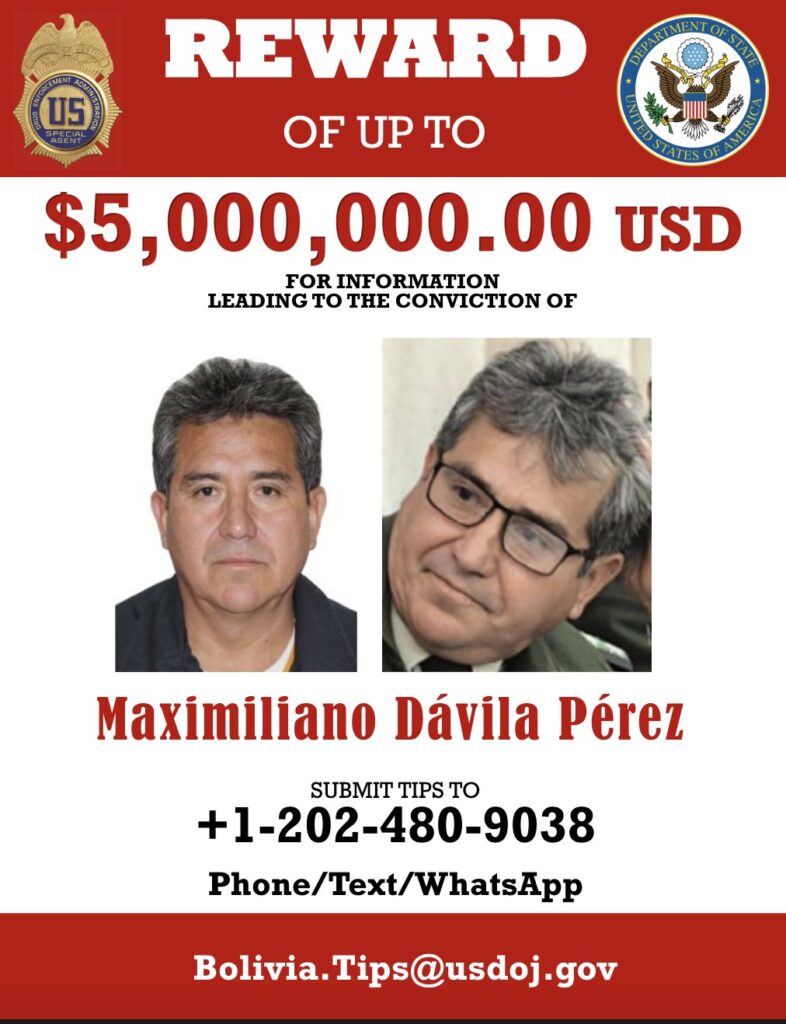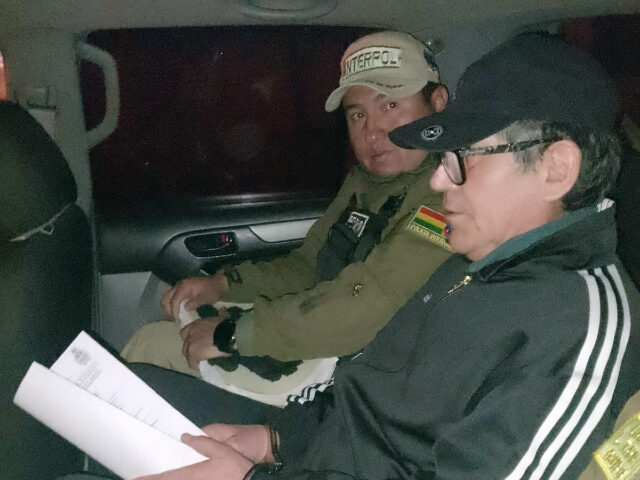Maximiliano Davila-Perez, once the Director of the Bolivian Special Forces for the Fight Against Drug Trafficking (FELCN), has been extradited to the United States where he faces federal charges of conspiring to import cocaine into the United States. He is also charged with conspiracy to use and possess automatic weapons in connection with his cocaine importation scheme. The United States Attorney’s Office for the Southern District of New York announced Davila-Perez’ extradition from Bolivia on Friday.
Once the subject of a reward of up to $5 Million from the U.S. Department of State, Davila-Perez, who headed Bolivia’s FELCN in 2019 under the country’s ex-president Evo Morales, was arrested in 2022 as he attempted to flee from Bolivia to Argentina. According to the U.S. Department of State, Davila was also accused of money laundering at the time of the reward offer.

Davila-Perez made his initial appearance in the Southern District of New York federal court on Friday afternoon before Judge Robyn F. Tarnofsky. According to the United States Attorney’s Office, Davila-Perez exploited his official position as Bolivia’s top narcotics cop in furtherance of a large-scale cocaine trafficking operation by seeking to divert resources away from investigating traffickers. He also provided heavily armed FELCN officers under his command as security for cocaine shipments, prosecutors said. Davila-Perez is accused of working in partnership with large-scale cocaine suppliers who operated cocaine labs in Bolivia and reportedly agreed to ship more than a thousand kilograms of Bolivian cocaine to New York.
According to the indictment against Davila-Perez, between November 2019 and February 2020, after being removed from his official position in Bolivia, recorded phone calls revealed that Davila-Perez and his co-conspirators continued to arrange cocaine shipments. During a series of recorded meetings and calls, the defendant is accused of discussing the drug competition in the New York market, his continued promise to provide armed protection for the cocaine shipment, and the successful delivery of a 10-kilogram sample of cocaine in Lima, Peru, which according to authorities in the United States, was delivered on or about December 10, 2019. That delivery, according to authorities, was in anticipation of the larger cocaine shipment that Davila-Perez and his co-conspirators intended to import to the U.S. under his protection.
DEA Administrator Anne Milgram commented on the extradition and prosecution case, saying, “Maximiliano Davila-Perez was supposed to fight the drug trade, but instead, he fueled it. As the head of Bolivia’s anti-narcotics agency, he turned law enforcement into a cocaine trafficking machine, seeking to flood our streets with poison. His betrayal of public trust ends here,”
The 60-year-old Bolivian has been charged with conspiring to import cocaine into the U.S., which carries a mandatory minimum sentence of 10 years in prison and a maximum term of life in prison, and conspiring to use and carry machine guns during, and to possess machine guns in furtherance of, the cocaine importation conspiracy. If convicted he could face a maximum term of life in prison.
Randy Clark is a 32-year veteran of the United States Border Patrol. Prior to his retirement, he served as the Division Chief for Law Enforcement Operations, directing operations for nine Border Patrol Stations within the Del Rio, Texas, Sector. Follow him on X (formerly Twitter) @RandyClarkBBTX.

COMMENTS
Please let us know if you're having issues with commenting.